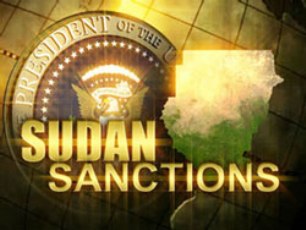US to ease sanctions on Sudan to allow educational exchange: diplomat
February 4, 2013 (KHARTOUM) – The top US diplomat in Sudan revealed today that Washington will soon make changes to its sanctions regulations that will allow educational institutions in both countries to deal directly with one another.

In 2010 the US announced it was easing sanctions on agriculture equipment and services which allowed half a dozen companies to obtain export licenses.
Khartoum has lobbied Washington intensively to lift sanctions but little progress has been made on this front.
In an interview with the independent al-Sahafa newspaper, the American charge d’affaires Joseph D Stafford said the Obama administration is prepared to hold comprehensive, frank and transparent dialogue with Khartoum on all issues that prevent normalisation of bilateral ties.
Stafford noted that security cooperation between the two sides, which strengthened more than a decade ago, is continuing, describing it as “good”.
However, the US diplomat called on Khartoum to resolve internal conflicts in Darfur, Blue Nile and South Kordofan.
He also denied the US is biased in favour of any party in Sudan and strongly dismissed accusations by officials in Khartoum that Washington is behind the “New Dawn” charter signed by opposition and rebel groups in Kampala last month.
Stafford said that Washington informed Sudanese rebels that they oppose any attempt to overthrow the regime by force and urged them to seek dialogue with Khartoum.
“We are only biased towards peace in Sudan,” the US official said.
He said that his country had stopped granting visas to Sudanese and reduced its staff following demonstrations last September which broke out in Khartoum at the US embassy over a film that was perceived as insulting towards the Prophet Mohammad.
Stafford called this a temporary measure that he hopes will soon be reversed.
(ST)
